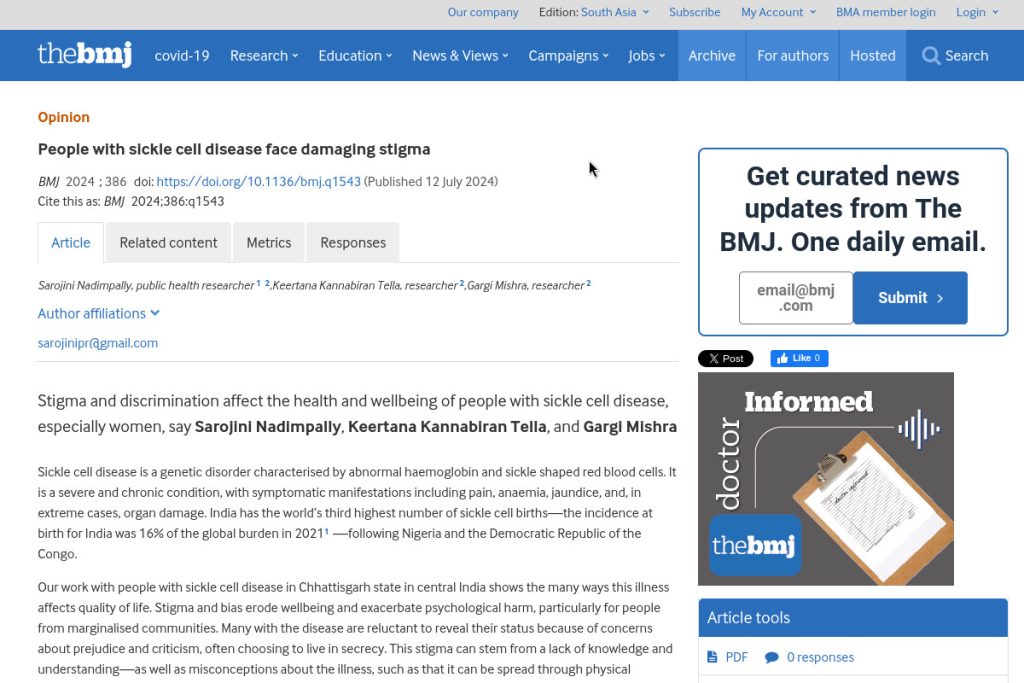Stigma and discrimination affect the health and wellbeing of people with sickle cell disease, especially women, say Sarojini Nadimpally, Keertana Kannabiran Tella, and Gargi Mishra
The BMJ | 12 July 2024

Sickle cell disease is a genetic disorder characterised by abnormal haemoglobin and sickle shaped red blood cells. It is a severe and chronic condition, with symptomatic manifestations including pain, anaemia, jaundice, and, in extreme cases, organ damage. India has the world’s third highest number of sickle cell births—the incidence at birth for India was 16% of the global burden in 2021—following Nigeria and the Democratic Republic of the Congo.
Our work with people with sickle cell disease in Chhattisgarh state in central India shows the many ways this illness affects quality of life. Stigma and bias erode wellbeing and exacerbate psychological harm, particularly for people from marginalised communities. Many with the disease are reluctant to reveal their status because of concerns about prejudice and criticism, often choosing to live in secrecy. This stigma can stem from a lack of knowledge and understanding—as well as misconceptions about the illness, such as that it can be spread through physical contact.
Stigma affects women particularly. Women with sickle cell disease experience anxiety around pregnancy and face an increased risk of miscarriage and other complications including premature births, pain crises, and anaemia. This shows the need for close monitoring and multidisciplinary care during pregnancy for women with sickle cell disease to improve maternal health outcomes.




